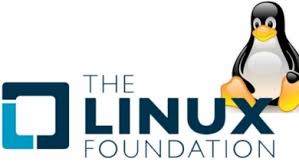Open source took center stage at the final keynote address of the 2017 Google Cloud Next conference on Friday, where tech leaders presented on the importance of openness in tech and business.
The focus on open source was highlighted in an address from Linux Foundation executive director Jim Zemlin, who claimed that organizations that “don’t harvest the shared innovation” of open source “will fail.” Open is the new economic norm in tech and business, Zemlin said, as “all of us are smarter than any one of us.”
SEE: Why machine learning and data analysis are critical to Google’s success in the cloud
The keynote was opened by Vint Cerf, vice president and chief internet evangelist at Google, who gave a brief history of open efforts in the early days of the internet. There’s a “thread of openness” that runs throughout the internet, Cerf said, and “the internet, itself, has open characteristics.”
If it weren’t for the openness of the internet, Cerf noted, Tim Berners-Lee wouldn’t have been able to easily publish the protocols of the World Wide Web, and Google’s founders wouldn’t have been able to launch their business without permission. The internet thrives on “permissionless innovation,” Cerf said.
Zemlin followed Cerf on stage, where he explained how open source has changed business models in tech. In working with the Linux Foundation, Zemlin said that he is often asked which open source projects are worth betting on. He said the open source projects that matter the most are the ones with the richest ecosystems. In his presentation, a slide gave the following two criteria:
1. A rich and diverse developer community whose code is used to create value which benefits industry and society.
2. Part of that value is in turn reinvested back into the project.
One example Zemlin gave was Kubernetes which, since it was open sourced by Google, has grown dramatically, he said. He also noted that Google’s approach to code is “intentionally porous” so code flows in and out of the organization constantly, which makes them more successful at open source.
Still, that begs the question of how an organization should approach open source. Eric Brewer, vice president of infrastructure at Google, said that it doesn’t matter when your company starts with open source, “what matters is your rate of innovation.” Linux, Brewer said, won some of the early internet wars because it was open, but also because it was the most innovative of its time. He also said that companies should work with open source for the value of the ecosystem and community, not just the value of the code.
The 3 big takeaways for TechRepublic readers
- At the 2017 Google Cloud Next conference, Linux Foundation executive director Jim Zemlin said that companies that don’t harvest open source innovations “will fail.”
- The open source projects that matter the most, are the ones with the richest ecosystems.
- Google’s Eric Brewer said that it doesn’t matter when an organization approaches open source, but it matters how quickly you innovate.
—
Source of this article: http://www.techrepublic.com



